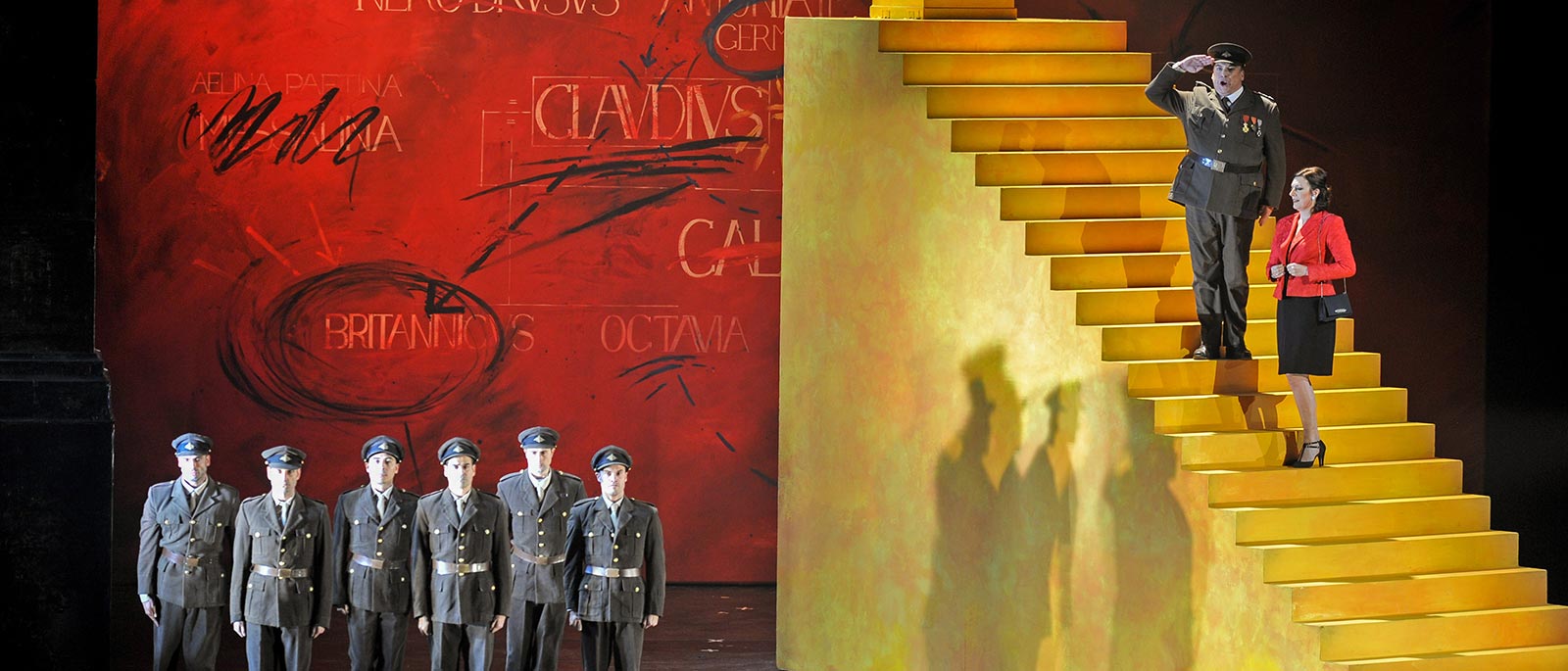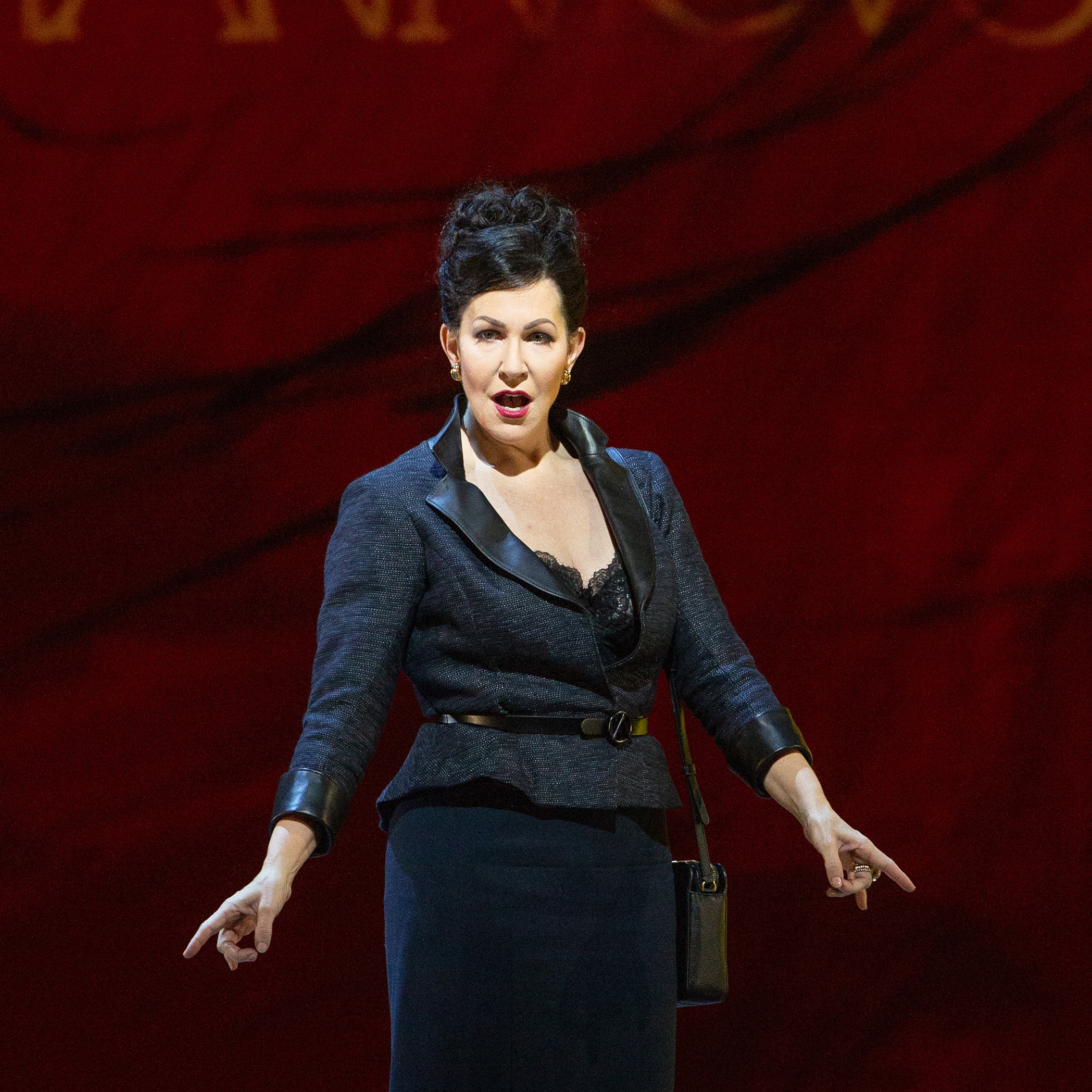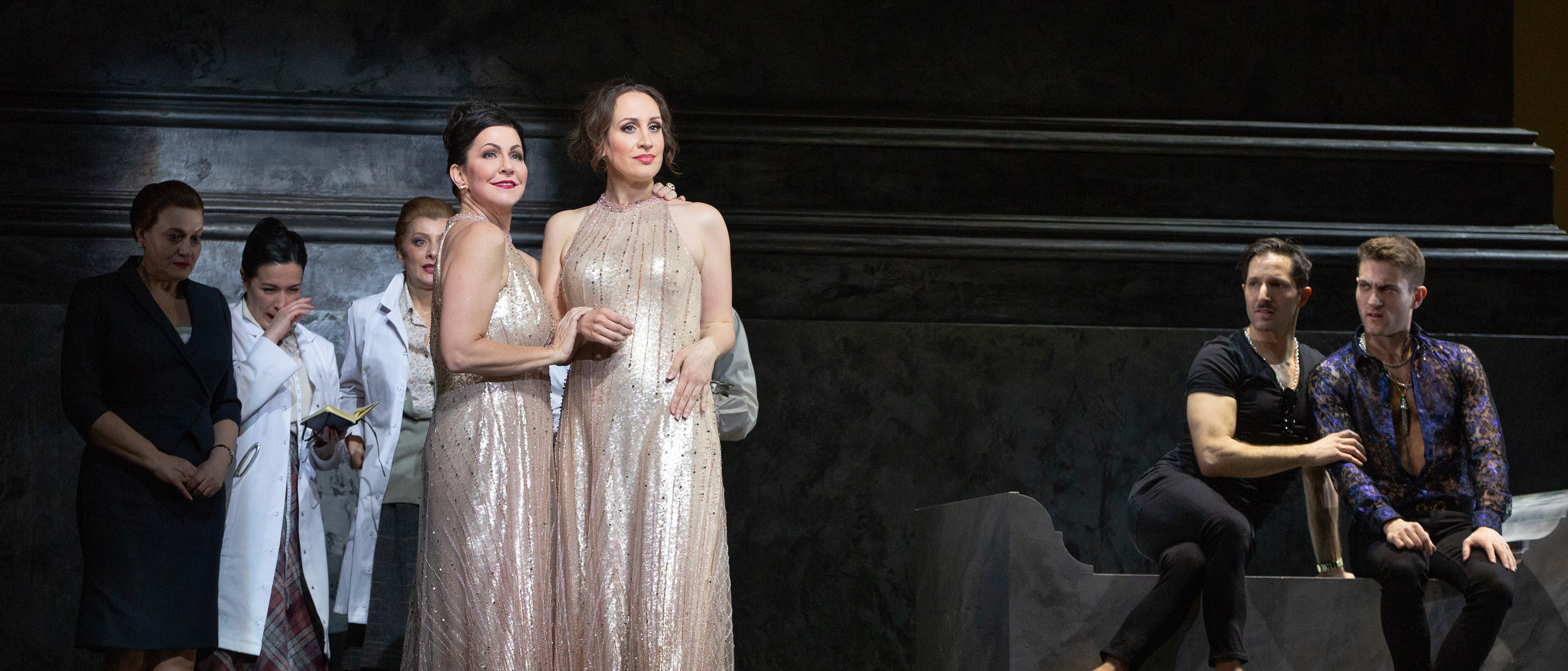
Agrippina
Lying, cheating, murder … there’s nothing quite like motherly love. The Roman noblewoman Agrippina was a helicopter parent for the ages. Glamorous, conniving, and desperate to see her son crowned emperor, she seduced, swindled, or simply dispatched anyone who stood in her way, and within a few years of her death, she had already become the stuff of legend. Roman writers wove endlessly colorful yarns about her, sprinkling her real-life exploits with deliciously dark details as readily as Agrippina (supposedly) sprinkled her enemies’ entrees with poison. All in all, her life could be boiled down to a single question: What wouldn’t you do for power?
Yet the composer George Frideric Handel and his librettist, Vincenzo Grimani, saw in Agrippina’s story much more than ruthlessness and cruelty: Amid the backstabbing and betrayal, they found the seeds of a story that could be very funny, too. Embracing the many competing romances at the story’s heart, they crafted a work that is as much soap opera as opera, as much sardonic farce as scorching social critique. “It is an intelligent piece,” director Sir David McVicar observes. “It is a scathing piece. It is very funny. And it tells a universal story, which is: People in high office often behave very, very badly to get there.” In order to highlight the story’s universality, McVicar has transported Agrippina from the first century to the twenty-first. As it turns out, the modern Roman Empire would be instantly recognizable, wickedly funny, and terrifyingly real.
This guide presents Agrippina as a window onto three different historical times and places: imperial Rome (where the story takes place), 18th-century Venice (where the opera was written), and the present day (when McVicar’s production is set). The materials on the following pages include a historical introduction to Agrippina and her family, a musical introduction to Baroque opera, biographical information on Handel and his collaborators, and classroom activities designed to bring Agrippina’s music and story to life. By delving into the opera’s music, poetry, and drama, this guide will forge interdisciplinary classroom connections, inspire critical thinking, and help students investigate how these three eras differ—and how they might be very much the same.
Included in the 2019-20 season of HD Live in Schools.

